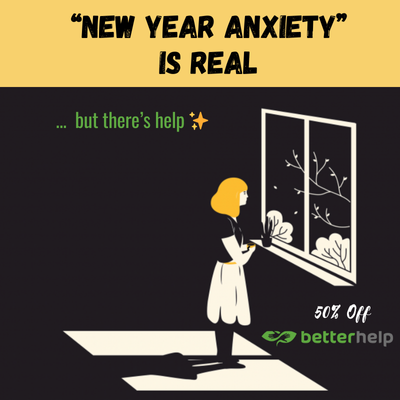I was babysitting my six-year-old honorary niece last week while her momma picked her dad up from a doctor’s appointment.
After a half hour of remote math lessons, we moved onto more forgiving endeavours, namely doodling, a shared passion. Then toward the end of our time together, she asked the question:
“Melanie, do you believe in God?”
It’s a simple enough query, but it’s also a tricky one ’cause it depends entirely on what one means by God, right?
So, I answered: “Yes, but I don’t think it’s an old dude with a beard sitting on a cloud.”
She gave me a funny look, giggled, and then kept on doodling. Existential convo averted (for now).
On my walk home the question swished and swirled in my mind.
The truth is, I grew up Catholic-ish. Although religion didn’t play a huge role in my home life, I was baptized, took catechism at school, had my First Communion with a group of hundreds of other kids sporting my school uniform and a crown of small white flowers, and was raised with a solid dose of Catholic guilt that still pops up in weird and inconvenient places.
My religious days have come and gone, but even in those years of doctrine-sprinkled childhood, it wasn’t the packaging of religion that cemented my belief in what I use the word God for. Instead, it was something both ineffable and distinct, something I’ve come to understand as the life of the life that lives all things, and in so doing, lives me too. It would be fair to say I took the omnipresent part seriously.
There’s a quote from Lord Tennyson’s poem, “The Higher Pantheism” which, masculine pronouns notwithstanding, struck me as deep, true, and right on the money from the moment I first heard it. It goes:
“Closer than hands and feet is he, and nearer than breathing.”
Do me a favor. Drop the “he” and take that in for a second. Isn’t it something? Closer than hands and feet and nearer than breathing? Woah.
Now, I get that many of us recoil at any talk of God. Understandably so, and so do I in the vast majority of contexts. Words are gateways to meaning, and reviling the catastrophic (and sometimes flat-out nonsensical) meaning that the loaded G word so often points to is categorically warranted.
And yet, this valid aversion is often a double-edged sword. It can lead us to altogether avoid the gateway that is the word; hence, missing an intimate and lived meaning that’s altogether different to what we rightfully revile.
Not to mention this pickle…
Many of us are either hell-bent on knowing the divine by way of interlocutors, or relinquishing the divine because said interlocutors bite the big one. Anything will do lest we gaze on it directly.
Like the myth of Perseus and Medusa, we look for divinity through rearview mirrors to conquer its mystery without turning our identified, conditioned selves to stone. We gather artifacts, ceremonies, enemies, hierarchies, rituals, blind beliefs, knowledge, books, drugs, likeminded herds, bearded figurines, the works. All the while, our embodied experience is by and large unaffected and, let’s face it, mired in suffering and resistance, at times so dense we can taste it.
In that sense, our relationship to God is like our relationship to so much else: externalized. There’s us, and then the thing we think holds the key to our understanding, the substance to our longing, the end of our suffering.
Setting symbols, superstitions, and interlocutors aside, and in line with Lord T’s aforementioned quote, these days I find God on the regular in my instrument: my body.
As sexy as that may sound to some, and downright blasphemous as it might to others, I’m afraid, for the most part, it’s pretty bare-bones and basic. Without going too far down the rabbit hole—to me, God is life. That’s it.
Anticlimactic, eh? Well, perhaps upon first inspection, but it’s been truly marvelous.
I swear I’m not trying to pull a Christian “fast one” on you, but here’s this gem as an aperitif:
“Jesus said to him, ‘I am the way, and the truth, and the life. No one comes to the father except through me”~ John 16:6-7
Now, we can (and many will) interpret this as Jesus, a singular, supernatural (and I might add ruggedly handsome), immaculately conceived son of a bearded heavenly father saying he was the way, and the truth, and the life. Perhaps. But what if this points to an illumined consciousness of the simplest truth of being that pervades us all? I mean what’s the point of it all if the heavenly son, the embodiment of all that is good, came here exclusively for rounds of applause and glory? I’ve got neighbors with humbler dispositions.
Here’s the parallel that excites me, the pragmatic living miracle: The specific manifestation of life that you are cannot exist but in the zero point of the present now. Yes, this moment. And this one. And this one. And how you meet the now is through your cable to now, your body. (Try and put your body anywhere but now. See?)
Truth cannot be true anywhere that isn’t, which leaves only the zero point of the present now. And if there’s truly a way and a light, where else but in the zero point of the present now would it be? Ya feel me?
This is the beginning and the end of the journey of zero distance. The Alpha and the Omega, if you will. No one comes to the father (God, life, truth) except through it, because there is nothing else. Be in your body and meet the living God. You are welcome. Truly.
Okay, that’s admittedly pretty thrilling. Am I saying by virtue of being in a body, you’re a God?
Nope.
What this points to isn’t a rags to riches exaltation of you or me.
What it does point to is there’s a living miracle that this you you think you are (name, personality, beliefs, preferences, narratives, grievances, patterns, desires) unfolds in. One that just by savoring (and savor, you can) through your subtle and gross senses is enough to bring a level of joy, purpose, benevolence, and fullness to your life you’d freakin burst with delight (and live to tell the tale).
But how do we separate the two? How do we peel the sticker off the backing? “There’s a me I think I am, and a greater me that’s the beginning and the end? What?!”
Here’s my economical (yet effective) trick to coming amazingly close:
Whatever I am feeling (in my body, ’cause where else would I feel?) it’s true that I am feeling it when (now, only, and always) I am feeling it.
Whatever I am thinking (in my noggin, ’cause where else would I think?) it’s true that I am thinking it, when (one more time: now) I am thinking it.
This assertion lands us in a spectacular paradox we often miss. We contain, create, and animate worlds, all within a circumference fit for a porkpie hat, averaging, roughly, 22 inches around. What a trip. And oh the scores of violent acts and inflicted suffering this awareness might spare us if integrated.
Rather than saying “because I feel this, that is true out there” aka “because you make me uncomfortable you must be a criminal wang,” this keeps us on the strait and narrow: the phenomenon of feeling. Projection begone! Wow. “This feels? Wow wow wow.”
And rather than saying “because I think this, that is true,” we stay with the phenomenon of thinking. “Holy shit. Thought!”
No doubt, this trips people up. The first red flag alerts us to a deadening of rightful action. Or it goes onto moralizing malarkey like: “You talking about knowing God? You better be perfect.” Nah. Here’s the thing, when the projections we’ve casted on the world aren’t our excuses, amazing things happen. Like, for real.
No, we don’t become superior beings. No, we don’t stop hating it when our boundaries are crossed. But how we meet the moment changes. There’s space. There’s liberty that’s not at odds.
We operate from a humble truth that’s attuned to what honors the life that is, which (sorry to some) embraces the well-being of nature, and the safety and well-being of our fellows (’cause without it…well..).
Encoded in our human animal is the intuitive knowledge that we live in a relational context, and that making an enemy of it is about as counterproductive as it gets. Trust me, meeting God in the body temple is super practical.
To mix it up a bit, here’s some Kena Upanishad realness (which I first heard through Eckhart Tolle):
“Not that which the eye can see, but that whereby the eye can see: know that to be Brahman the eternal, and not what people here adore.”
Want magic? Here it is, friend. Real, practical magic. You belong to this weird ineffable, pervasive is-ness, but it doesn’t belong to you. You can remember it and forget it, and remember it again or forget it well into your dying breath, but you can’t turn it on or off any more than you can stop breathing air and survive.
How marvelous, no?
Brahman, God, truth, the life of the life of a tree called life (shoutout to E.E. Cummings’s poem, “I carry your heart with me (i carry it in)”), it carries you in its heart. It carries your heart in its heart.
There are actual, practical, actionable benefits to folding this into your awareness or simply considering it. Too many to get into in detail here.
Suffice to say this: it has been my experience (which always feels like a humbling and delightful square one) that touching this has set me free like nothing else, and delivered me out of patterns, turbulence, judgement, and repetition to a very simple place of meeting my embodied needs directly—without conquering others or folding into them—in harmony with the world that holds me, and in a growing awareness, not moral but actual, that everything around me is also me.
Give it a go, will you? “Closer than hands and feet and nearer than breathing.” Not because it’s right, but because it’s good. And good? Good we can feel.
Maybe when the kiddo turns eight, she’ll let me know what else is up. I wouldn’t be surprised.
~










Read 1 comment and reply